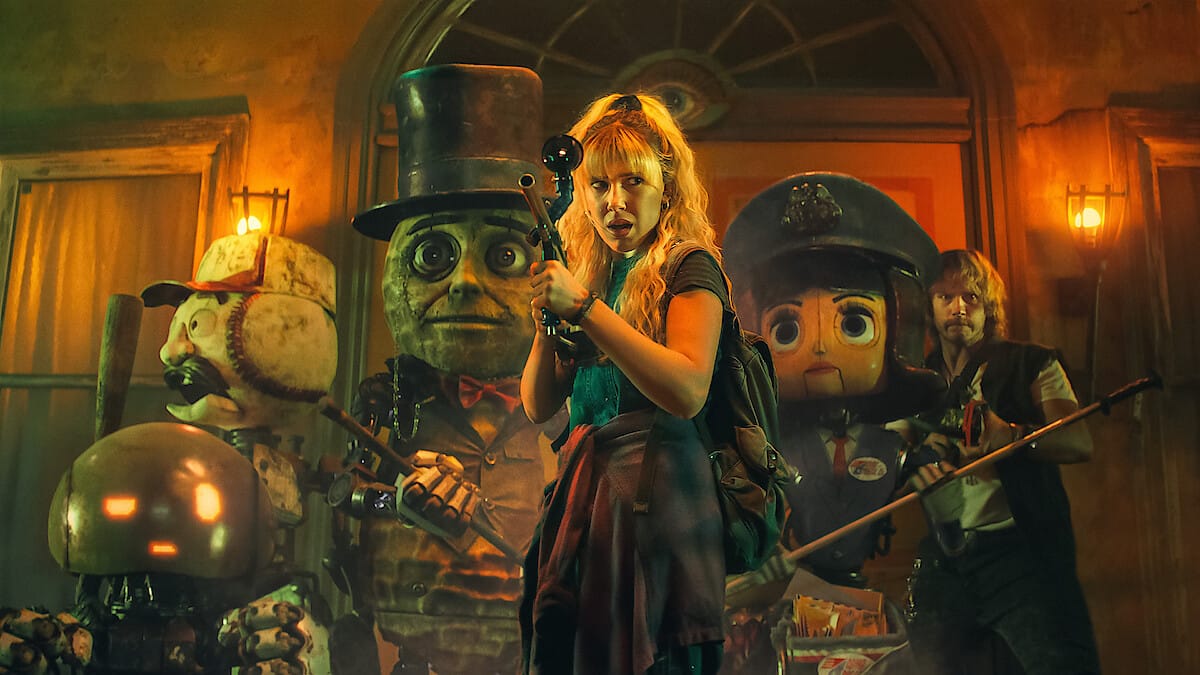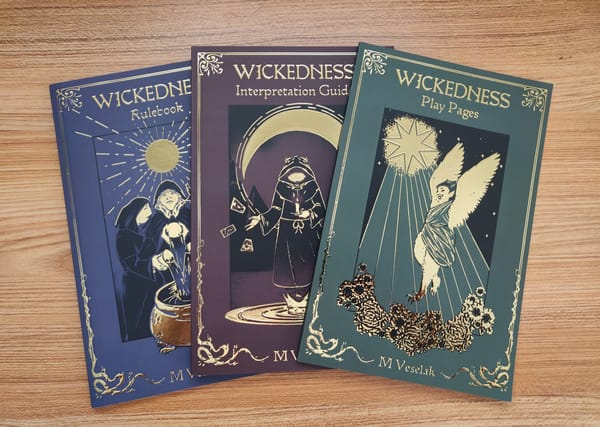Trauma Bonded By The Electric State
When the McDonald's spot is the better of Brian Cox's post-Succession projects.

Early in The Electric State’s runtime, Chris Pratt’s John D. Keats points to all of the food squirreled away in his desert bunker that isn’t fit to eat — the Masters of the Universe tie-in Zagnuts (in the original packaging), tidy rows of SPAM cans, carefully wrapped candy bars. His character, a smuggler for nostalgic commercial goods from some vague '90s The Never Was, refuses to sacrifice potential profit to nourish his own body.
“I’m not gonna eat it! It’s money!” he yells. This 2025 film follows a similar logic, adapting Simon Stålenhag’s artbook of the same name into a vapid, Marvel playbook-sans-superheroes romp that cost an eyewatering $320 million to produce and utterly bombed, both commercially and critically. Pratt, wearing a sandy mop and handlebar mustache like a cheap Halloween costume, joins Millie Bobby Brown’s Michelle Green on the search for her brother, presumed dead, who might just be stuck in a grinning, diminutive robot who can only speak in cartoon catchphrases.
Rowan and I sat down to watch The Electric State not to review it — you can read plenty of damning criticism online — but to examine the Russo brothers’ directorial adaptation against the tabletop RPG that Free League produced late last year. It became clear after five minutes that such a project couldn’t hold together. The film’s politics, where they exist at all, feel designed by committee. It is allergic to communicating anything of substance and seems uninterested in allowing a character to grow or change (beyond cutting Pratt’s hair for one of the only jokes that actually land).
So, Rowan, I have to ask: what did you think of The Electric State?






